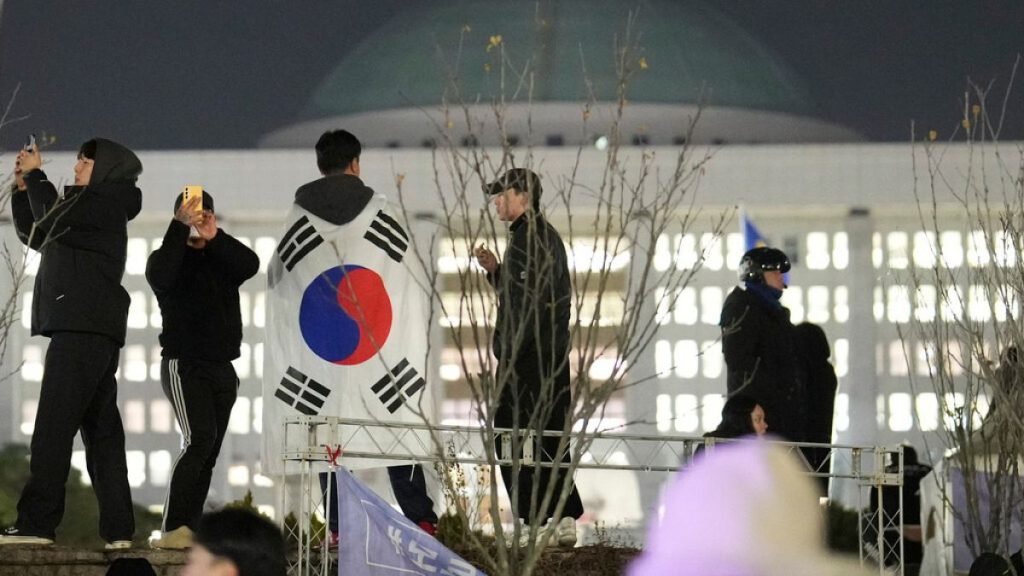On a tumultuous Tuesday evening, South Korean President Yoon Suk Yeol made a controversial decision to declare an emergency martial law for the first time in over four decades. Following this declaration, the military temporarily assumed control from civil authorities with the power to enforce laws, effectively suspending existing statutes. The president justified his choice by citing the need to defend the constitutional order of liberal democracy amidst perceived threats from North Korea and alleged anti-state activities from the opposition party, which controls the National Assembly. His actions sent shockwaves across the nation, eliciting responses ranging from fear to anger among citizens and political adversaries alike.
Yoon’s televised announcement, delivered just before midnight local time, framed the martial law as a necessary step to safeguard national security and restore order. He accused members of the opposition, particularly those from the Democratic Party, of being sympathetic to North Korean ideals and of wreaking havoc on the government’s functionality through repeated attempts at impeachment and legislative obstruction. This marked a dramatic escalation in political tensions between the ruling and opposition parties, reflecting a deepening political divide in South Korea. Opposition leaders were quick to respond, calling the martial law declaration unconstitutional and vowing to protect democracy and civil liberties against what they deemed an overreach of executive power.
In a bid to quell the escalating unrest and tension, the emergency martial law was lifted within approximately six hours of its declaration, following a bipartisan vote in parliament. With 190 lawmakers from the opposition coalition voting to annul Yoon’s order, the rapid response highlighted the fragile balance of power within the South Korean political landscape. After the lifting of martial law, police and military personnel withdrew from the parliament grounds, signaling an abrupt end to the president’s unprecedented move. The Parliament Speaker, Woo Won Shik, lauded the resolution, emphasizing the importance of maintaining democratic principles and recognizing the military’s restraint amidst an unsettling situation.
The declaration of martial law had unprecedented implications, including the physical presence of military troops in the National Assembly, where they faced confrontation from lawmakers who expressed their defiance by deploying fire extinguishers to block access. The events unfolded against a backdrop of civil unrest, as hundreds of protesters gathered outside the parliament, fervently demanding Yoon’s impeachment. The atmosphere was charged with sentiments of returning to a repressive authoritarian regime, fueled by unsettling recollections of South Korea’s past under military dictatorships. Protesters articulated their fears that the president’s unilateral actions could undermine democratic institutions, sparking a widespread outcry for accountability.
As the political landscape shifted dramatically in a short span, the incident revealed the complexities and vulnerabilities in South Korea’s democracy. With Yoon commanding a diminishing legislative majority and facing intense political opposition, the martial law declaration served as a stark reminder of the tensions between executive power and legislative oversight in a functioning democracy. Furthermore, it underscored the persistent fears of authoritarianism that linger from South Korea’s tumultuous history, compelling citizens and lawmakers alike to defend the integrity of their democratic processes.
In conclusion, the fleeting imposition and rapid abrogation of emergency martial law under President Yoon Suk Yeol highlight significant frictions within South Korean politics, showcasing both the fragility of democratic governance and the power dynamics between opposing political factions. The episode has engendered a renewed sense of vigilance among citizens, emphasizing the necessity for transparent and accountable governance in maintaining the delicate equilibrium of power while safeguarding civil liberties against potential overreach by the executive branch. The events may serve as a catalyst for deeper reflection on South Korea’s democratic values and the ongoing challenge of navigating a politically polarized environment.














